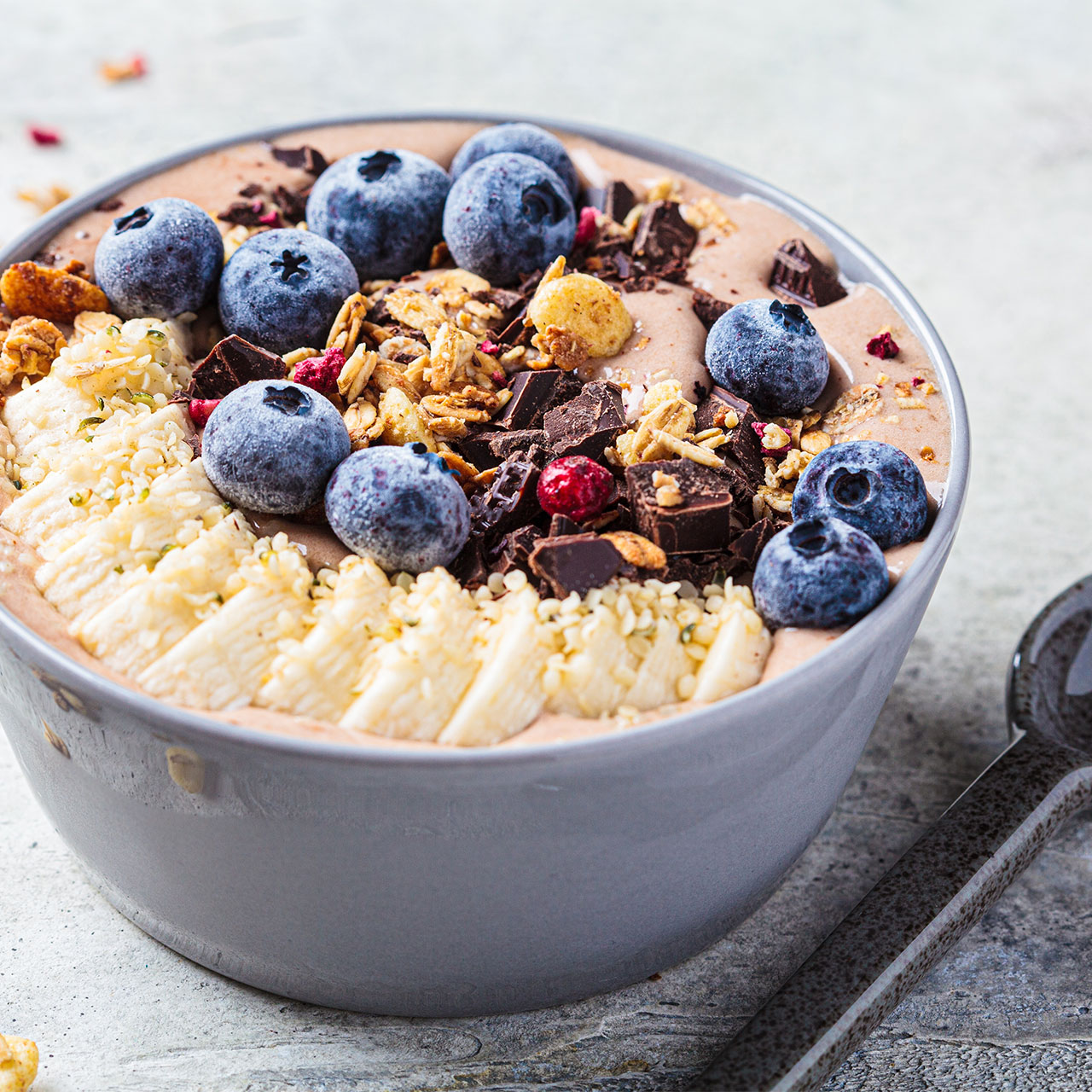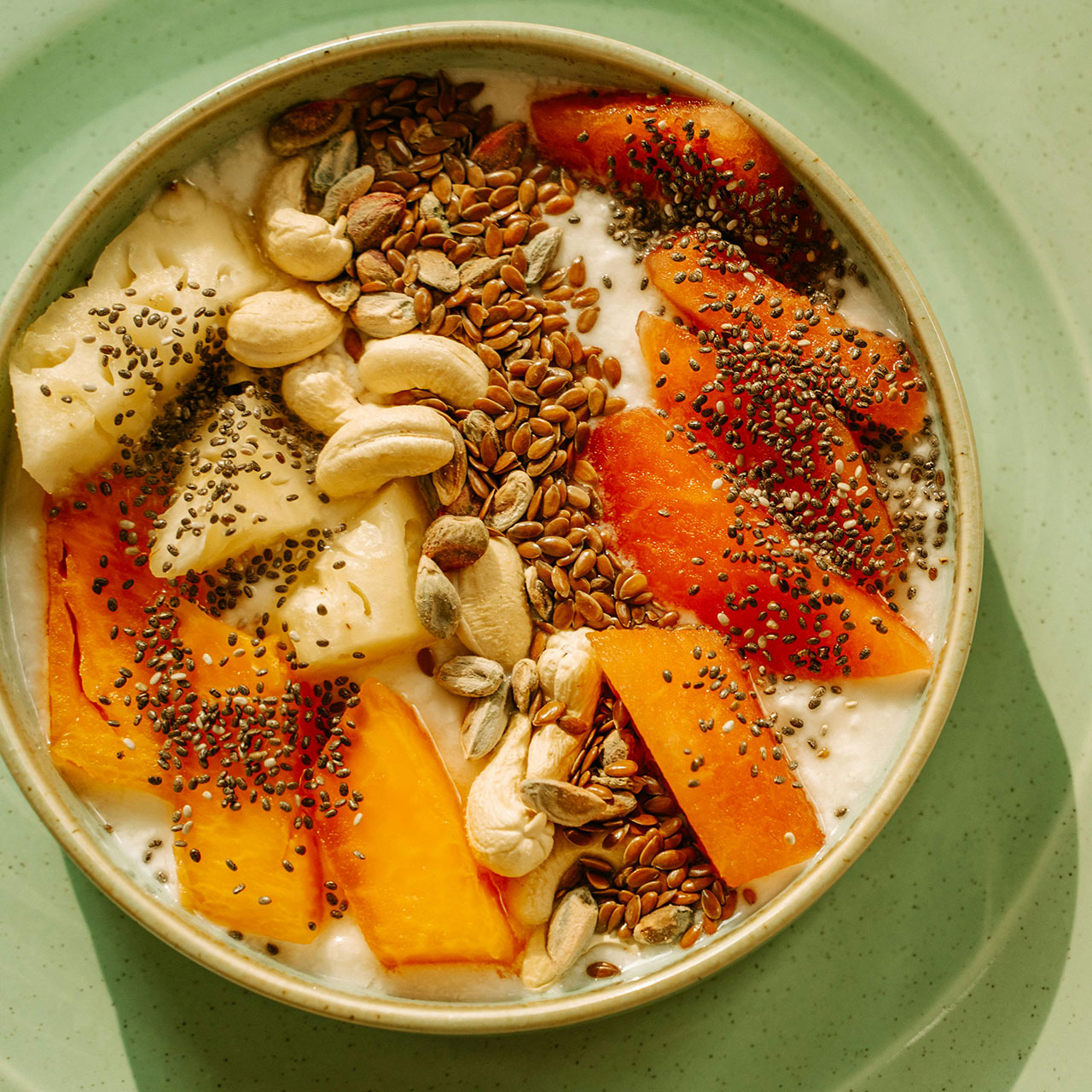This story has been updated since it was originally posted on 06/06/2022 to include more expert insight
Who doesn’t love a morning cup of joe? If you rely on a hot cup of coffee to kickstart your day, you’re certainly not alone, and if you love yours on the sweeter side, you’re probably in the majority. Unfortunately, adding flavored, sweet ingredients to the mix can be detrimental to your health—even if you’re choosing artificial sweeteners over sugar.
You may think that opting for artificial sweeteners is a healthier way to please your sweet tooth while trying to lose weight, but health experts warn that this ingredient can be just as bad for you as its counterparts. To get down to the bottom of things, we checked in with nutritionist Lisa Richards, author of The Candida Diet; registered dietitian Zoë Schroeder; Dr. Daryl Gioffre, celebrity nutritionist and founder of Alkamind; and functional nutritionist Amy Lippert. They told us that consuming high amounts of artificial sweetener can ultimately lead to a number of health issues, such as gut dysbiosis and, ultimately, weight gain.


Artificial sweeteners
Don't be fooled by the fact that artificial sweeteners are typically advertised as a healthy alternative to sugar, especially if you struggle with digestive issues and inflammation. Lippert warns that adding this ingredient to your coffee can result in serious health complications over time because they are "ultra-refined, full of chemicals, and are highly inflammatory and toxic to the body." She notes that "consuming these on a daily basis leads to gut health issues, inflammation, and potential chronic symptoms, including weight gain, and may make losing weight harder." Yikes!
Artificial sweeteners and gut health
Richards agrees that artificial sweeteners such as sucralose and aspartame "can irritate the gut and cause dysbiosis in the gut's microbiome." This refers to an imbalance of bacteria in your gut, which she says can lead to "more gastrointestinal discomfort like gas, bloating, and worse."
According to Dr. Gioffre, sucralose is that one of the the biggest culprits when it comes to gut issues. "One study found that [sucralose] can reduce your healthy gut bacteria by up to 50 percent," he says, "This is because it isn’t broken down during the digestion process, so it arrives in your large intestine fully intact; your gut bacteria feast on it and die. It also accumulates in your fat cells."
If you want to avoid these issues, it may be best to skip the sweetener altogether—or at least cut back as much as possible.
READ MORE:
Here’s Why Artificial Sweetener Could Be Making Weight Loss So Much Harder
How To Improve Gut Health Naturally: 12 Tips To Consider

Artificial sweeteners and weight gain
In addition to gut issues and inflammation, there's another risk that comes with loading your coffee with artificial sweetener: sugar cravings that can lead to weight gain. Schroeder notes that while you may be saving on calories initially with these ingredients, you'll likely end up chowing down on unhealthy snacks later in the day. "Artificial sweeteners can actually increase your sugar cravings, which, if you're trying to reduce added sugar and processed foods, can be counterproductive and very frustrating," she says.
So in the end, skipping out on real sugar in the morning may just lead to a higher sugar intake later in the day. And we all know that eating too many sweets will lead to weight gain over time—which means choosing artificial sweeteners could turn out to be extremely counterproductive if you're trying to stay fit.
All in all, the healthiest choice when it comes to your morning caffeine boost is to take your coffee black. However, there are still options to consider for those who can't go without a little bit of sweetness. Natural sweeteners like honey can save the day. Just steer clear of too much sugar or artificial sweeteners. Your body will thank you for it!
READ MORE:
The Healthiest Coffee Sweetener For Weight Loss, According To Nutritionists


























